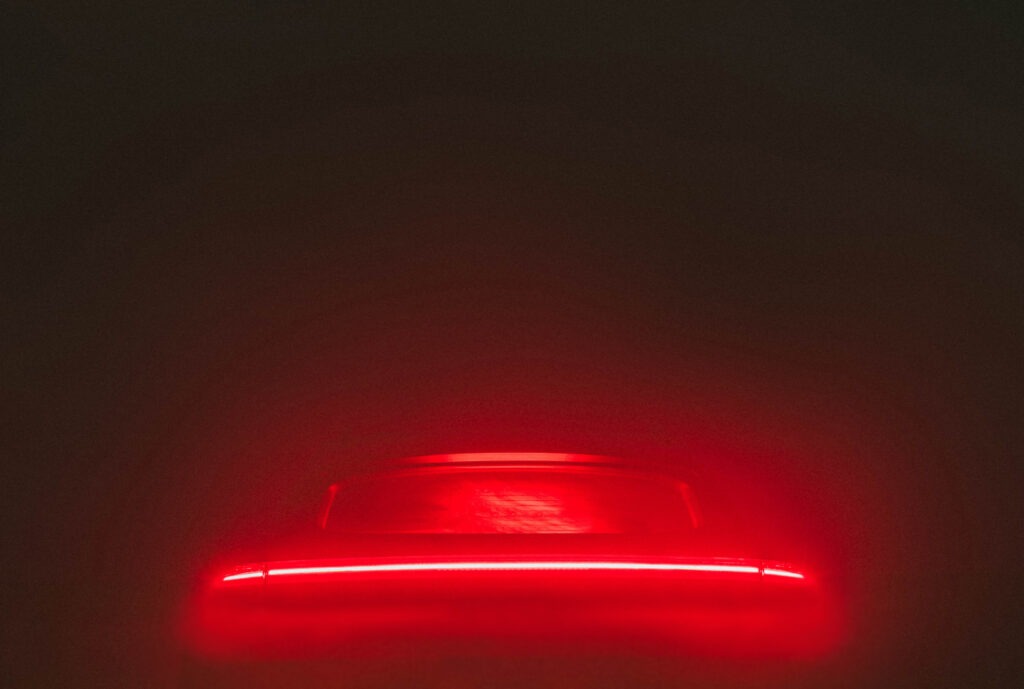Skoda leads European EV market for the first time
18 December 2024

The European battery-electric vehicle (BEV) and plug-in hybrid (PHEV) markets experienced contrasting results in October. Skoda was even able to break Tesla’s winning streak. Autovista24 journalist Tom Hooker analyses the latest figures from EV Volumes.
A total of 169,723 BEVs took to Central and Western European roads in October. This equated to a registration increase of 6.3% year on year. This was an improvement of over 10,000 units compared to 12 months ago.
It marked the technology’s best-ever October in terms of volume, following strong growth in September. However, all-electric vehicle deliveries were down 1.4% in the year to date, with over 1.6 million units.
On the other hand, PHEV volumes dropped by 8.4% in the month. The powertrain posted 81,837 registrations, 7,000 units fewer than in October 2023. PHEVs also fell in the first 10 months of 2024, down 4% year on year to 781,286 units.
Big win for Skoda
For the first time since October 2022, the Tesla Model Y did not lead the monthly BEV market. Instead, the Skoda Enyaq took its first-ever win in the month.
The crossover from Skoda reached a record 11,188 registrations in October, up 32.3% year on year. The model from Skoda achieved a market share of 6.6%, an increase of 1.3 percentage points (pp) from one year ago.
The Tesla Model Y took second in October with 8,865 units. The BEV usually records a registration dip at the start of each quarter. Yet, the month's figure was 19.9% lower than its performance in October 2023. The crossover accounted for 5.2% of BEV deliveries, some distance behind its 6.9% share from one year ago.
In third came the Volkswagen (VW) ID.4, the first of three appearances from the brand in October’s top 10. It reached 6,670 registrations, a 21.3% increase year on year. This was its third-best result of 2024, behind June and September. The model made up 3.9% of the BEV market, up 0.5pp from 12 months ago.
The Audi Q4 e-Tron finished fourth, with 5,584 deliveries. Demand for the SUV has dropped from 2023, with volume down 28% year on year. It took a 3.3% market share in the month, down 1.6pp on October 2023. Volvo’s EX30 placed fifth, recording 5,441 registrations, with a 3.2% market share. This was its lowest monthly figure since February this year.
Delivery ramp-up completed
Sixth went to the VW ID.7, with 5,348 new models taking to European roads. The saloon seems to have completed its delivery ramp-up, with October marking its second consecutive month of over 5,000 units.
The VW ID.3 took seventh, with 4,757 units. This was a 21.7% improvement from one year ago. It took a 2.8% market share, growing 0.4pp from October 2023. In eighth, the BMW iX1 reached 4,728 registrations, an increase of 4.1% year on year. The model captured 2.8% of the BEV market, stable from October 2023.
In ninth came the Tesla Model 3, recording its lowest monthly total since April 2024 with 4,535 registrations. This was down 30% from 12 months ago. The sedan held a 2.7% market share, a considerable drop from its 4.1% share from one year ago.
Rounding out the top 10 was the Mercedes-Benz EQA. A total of 4,275 units were delivered to customers in the month, a 35.6% rise year on year. It accounted for 2.5% of the BEV market, up 0.5pp.
Tesla maintains overall lead
Despite not leading the monthly delivery figures, the Tesla Model Y kept its grip on the market. The crossover registered 164,017 units in the year to date.
It sits 73,319 deliveries ahead of its stablemate, the Tesla Model 3. Furthermore, the BEV is 97,381 units ahead of its nearest non-Tesla competitor. The Model Y accounted for 10.2% of all electric registrations from January to October.
The Tesla Model 3 followed in second, with 90,698 deliveries. It took a 5.6% share in the first 10 months of 2024. Volvo’s EX30 claimed third, with 66,636 registrations and a 4.1% share.
Position change for Skoda
The first position change occurred in fourth, with the Skoda Enyaq moving up one place. The BEV recorded 61,964 deliveries in the year to date, capturing 3.8% of the market.
After October’s win, the Skoda Enyaq could catch the Volvo EX30 if it continues its strong performance. Falling to fifth was the Audi Q4 e-Tron, with 58,013 units. This gave it a 3.6% share.
The BEV is in danger of dropping further, with the VW ID.4 taking sixth. The sedan delivered 51,394 new models in the first 10 months of the year. This resulted in a market share of 3.2%.
Its sibling, the VW ID.3, also jumped up one position to eighth with 46,288 registrations. The BEV recorded a 2.9% share from January to October. The two German models displaced the MG4, which recorded 45,766 units. The hatchback made up 2.8% of deliveries.
Behind came the BMW iX1, which could also overtake the MG4 if it maintains its strong form. A total of 43,404 deliveries for the SUV equated to a 2.7% share. Its stablemate, the BMW i4, finished in 10th. It reached 37,407 registrations in the first 10 months of the year. It recorded a market share of 2.3% in this period.
PHEV victory for Volvo
The Volvo XC60 was the most popular PHEV in October. It reached 5,658 registrations, a 53.4% increase on 12 months ago. This was the SUV’s second-best-ever performance, behind only March. It posted a 6.9% market share, some distance ahead of its 4.1% share from one year ago.
BMW’s X1 achieved a record result in second, the first of three models from the brand in the top 10. Its 4,054 deliveries were 47.3% higher than its figure from October 2023. The SUV made up 5% of the market, up 1.9pp.
In third came the Ford Kuga with 3,854 registrations. Demand for the crossover dropped by 9.7% year on year as it took a 4.7% share, down 0.1pp.
The VW Tiguan finished fourth, with a record 3,479 units. This equated to an 82.8% growth compared to 12 months ago. It captured 4.3% of the market, far ahead of its 2.1% share from one year prior.
Mercedes-Benz claimed fifth with its GLC, reaching 3,283 registrations. However, this was a 13.5% decline on October 2023 and its market share fell 0.2pp to 4%. The BMW X5 placed sixth with 2,346 units. This was a 51% increase year on year. The SUV made up 2.9% of plug-in hybrid volumes, up 1.2pp.
Registration stability
In seventh came the Volvo XC90, reaching 2,086 deliveries, a 70% improvement on October last year. The Swedish model accounted for 2.5% of the market, beating its 1.4% share from 12 months ago.
The Mercedes-Benz E-Class took eighth with 1,910 registrations. This was just six units behind September’s total, its best result of the year so far. October’s figure represented a 430.6% surge in demand for the model, which managed a 2.3% share, up 1.9pp.
In ninth was the BMW 3-Series, recording 1,876 deliveries. Volumes for the saloon declined by 11.6%, while its share dropped 0.1pp to 2.3%. Toyota’s C-HR placed 10th, with 1,801 units in its ninth month of European registrations. This resulted in a 2.2% market share.
No changes at the top
The Volvo XC60 was the best-selling plug-in hybrid in the year to date, thanks to 46,550 deliveries. This gave the SUV a gap of 9,120 units to its closest competitor. It took a 6% share from January to October.
In second came the Ford Kuga with 37,430 registrations. This resulted in a 4.8% share. Third place went to the Mercedes-Benz GLC, reaching 33,540 deliveries. The SUV accounted for 4.3% of registrations. Fourth place was claimed by the BMW X1, posting 31,319 units from January to October. Its share sat at 4% in this period.
The Cupra Formentor finished fifth, reaching 23,909 deliveries. This gave the Spanish model a 3.1% share. Sixth went to the Porsche Cayenne, posting 21,606 registrations in the first 10 months of the year. This resulted in a 2.8% share. In seventh was the Kia Sportage, with 20,838 units. The SUV captured 2.7% of the market.
Eighth place was taken by the BMW 3-Series, recording 20,723 deliveries. The Sedan also made up 2.7% of PHEV volumes. It could challenge for fifth by the end of the year, with the three models ahead of it not appearing in October’s top 10. The Audi A3 finished in ninth, with 20,233 registrations. This gave it a 2.6% share.
Rounding out the top 10 was the Volvo XC90, posting 19,304 units. Like the BMW 3-Series, the Volvo XC90 could also move up the table, capitalising on a slow end to the year for its competitors. The SUV accounted for 2.5% of deliveries from January to October.




